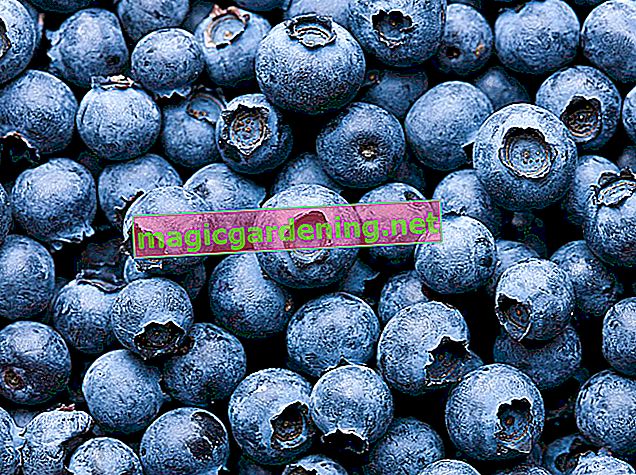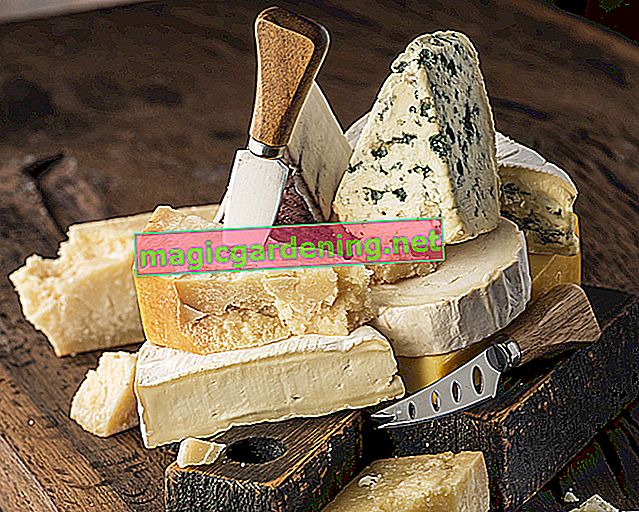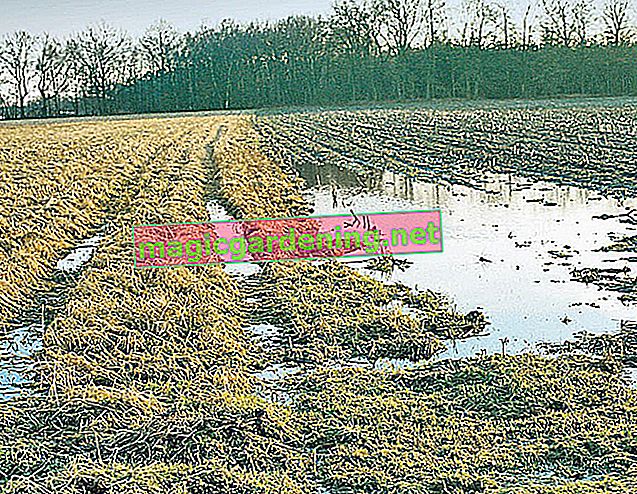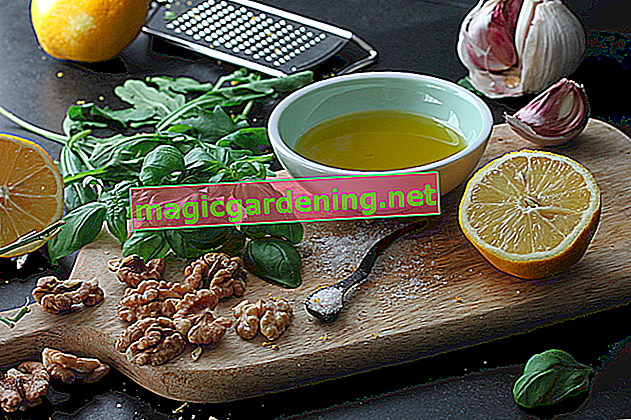
Domestic forest blueberries and cultivated blueberries for the garden
Wild forms of the bilberry, such as the wild bilberry Vaccinium myrtillus, which bear fruit from July onwards, are botanically only very distantly related to the cultivated blueberries sold in specialist garden shops today. In the food trade and also among garden plants, cultivated blueberries grown from North American blueberry varieties have now largely replaced wild blueberries. Since the cultivated blueberries have an almost white pulp inside the blue skin and no coloring juice, the term blueberry can only be attached to the skin color.
also read
- Collect blueberries for consumption
- Harvest blueberries with cultivated blueberries in your own garden
- Blueberries in the garden - the best varieties
The coloring power of wild blueberries
If you discover ripe wild blueberries on walks through the woods in midsummer, you should handle them as gently as possible when picking them. Otherwise, the blue juice from squeezed fruits quickly turns your fingers a strong blue shade. Therefore, it is advisable to have a cloth or some water with you to clean your fingers when collecting the blueberries in the forest. Water you bring with you can also be used to wash the blueberries on site, so that they can be cleaned of the sometimes dangerous pathogens of the fox tapeworm while snacking directly from the bush. When consuming large quantities of wild blueberries, your tongue may turn blue, which is completely harmless to health.
Use the coloring effect of blueberries in the kitchen
Some baking recipes and other dishes can be visually spiced up with a certain amount of color. If you do not want to use artificial coloring, you can also use the coloring effect of wild blueberries. You can easily use the juice of fresh wild blueberries to color the following foods:
- juices
- Cake batter
- pancakes
- Dessert creams
Make sure, however, that when using blueberry juice as a coloring agent, you may reduce other liquid components with regard to the desired consistency of the food.
The many advantages of delicious blueberries
Blueberries have not only been a valued sweet fruit for centuries, but thanks to their healthy ingredients have always been consumed for health purposes. Blueberries generally have a regulating effect on the digestive processes in the stomach and intestinal tract. In addition, dried blueberries are more likely to have a constipating effect on the digestive system, while a larger intake of fresh blueberries may have a laxative effect.
Tips & Tricks
In principle, all types of blueberry can be used in your own garden. The wild blueberry varieties, however, only bring low yields, need at least a partially shaded location and, due to the strong propagation via self-sowing and root runners, are suitable as ground cover on fallow land and embankments. Cultivated blueberries such as the popular Bluecrop variety can bring high yields that can be preserved by freezing or boiling.








